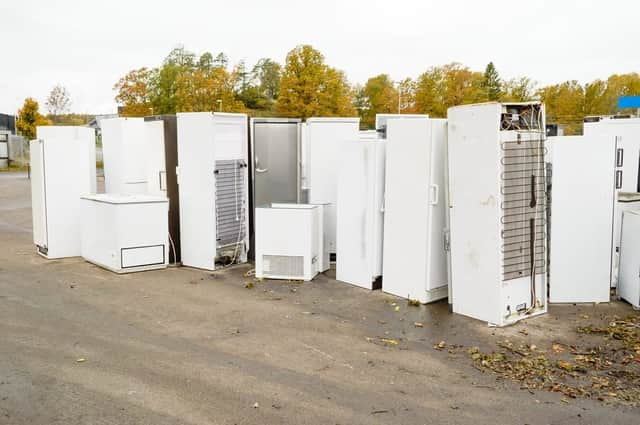250 popular fridge models exposed as potential fire hazards


Hundreds of fridges currently on sale in shops across the UK are potential fire hazards, a consumer watchdog has warned.
An investigation by Which? of more than 500 of the most popular refrigeration appliances on the market revealed that the backing material on almost half (45 per cent) of all fridges, freezers and fridge-freezers tested was made of “unsafe” plastic, posing a potential fire risk.
Advertisement
Hide AdAdvertisement
Hide AdFurthermore, a number of models backed with plastic that manufacturers previously claimed was "flame-retardant" could actually accelerate the spread of a fire according to the findings.
“Which? now believes all plastic backing material could be a fire risk in people’s homes due to the potential to accelerate the spread of flames in the event of a fire starting,” the watchdog said.
Take fridges off the market
The body, which has created a free online tool to help consumers check the backing material of hundreds of the most popular fridges, freezers and fridge-freezers currently on the market, is urging manufacturers to immediately cease production of refrigeration appliances with any plastic backing and said retailers should stop selling the products straight away.
Which? has also demanded the Government set out an action plan to stop “potentially unsafe products” reaching consumers’ homes in future.
“People will rightly be outraged to learn that manufacturers and retailers are selling potentially unsafe products that could be putting their lives at risk,” said Which? chief executive Peter Vicary-Smith.
Government intervention
“If manufacturers and retailers fail to act and leave plastic backed fridges, freezers or fridge-freezers on sale the Office for Product Safety and Standards must step in and take action."
A spokesman for the Office for Product Safety and Standards said: ““The Government's top priority is to keep people safe. Manufacturers selling white goods in the UK must meet some of the strictest safety laws in the world and we are working with Which? and other parties to see whether standards can be made even more stringent.”
A version of this story originally appeared on our sister site inews.co.uk